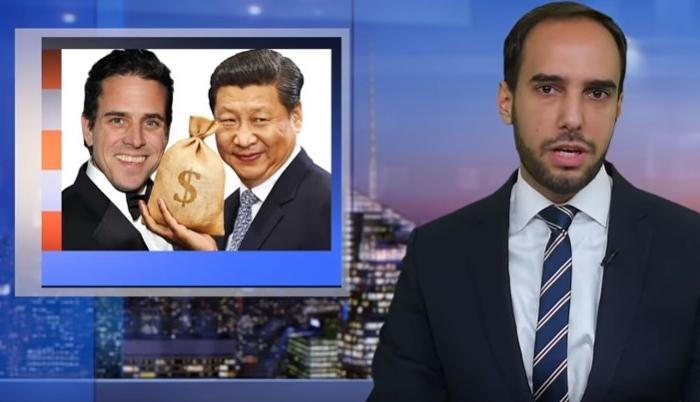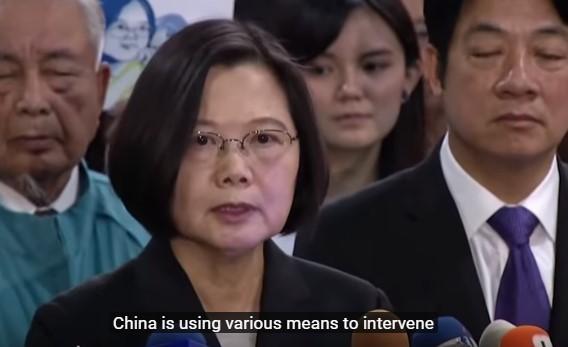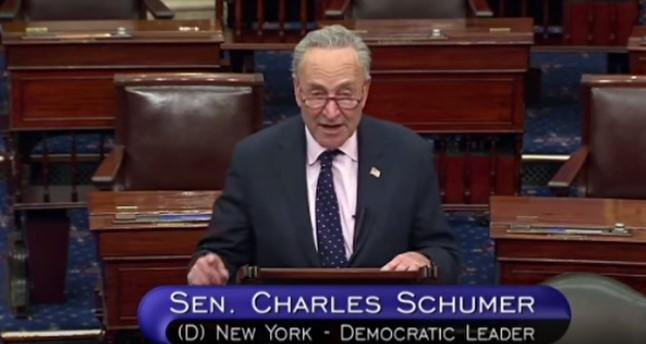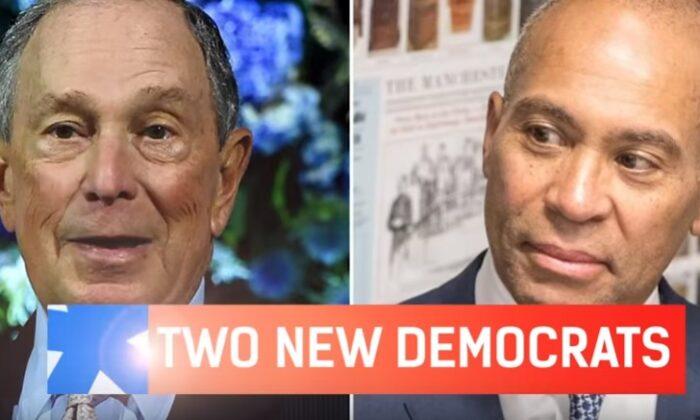We all know the conventional wisdom about Western businesses in China. They’re highly respected, Western businessmen are welcomed with open arms, and so on. But the reality is far different.
The past few months have been hard for Western companies in China. Surprise early morning raids, investigations, fines—Western companies are becoming victims of a growing anti-monopoly campaign by the Xi Jinping regime.
At least 30 foreign firms have been hit. Some of the bigger ones include Microsoft, JP Morgan Chase, and British pharmaceutical company GlaxoSmithKline. The Chinese regulators said they’re invoking a 2008 anti-monopoly law, but the general feeling among these companies, and with business groups like the U.S. Chamber of Commerce in China, is that these investigations don’t have much to do with the law.
It’s All About Guanxi
So why is this happening to Western companies now? It has to do with a very important concept that most Westerners fail to truly grasp: guanxi. Just like Chinese politics, Chinese business is controlled by the Big G. Guanxi describes the personal relationships you have. When it comes to doing business, it’s your personal network. The people you’ve done stuff for, or who you can call on to do you a favor.
If you have good guanxi, you have it all. Sure, for the best guanxi, you might have to grease the wheels with bribes every now and then, take a few kickbacks, look the other way from time to time, but that’s just how business gets done in China.
So are these Western businesses getting in trouble for bribery and corruption? Actually, no, which is the interesting part. They’re getting in trouble for things like pricing violations and market dominance.
There are all kinds of theories out there about why this is happening: to protect domestic Chinese firms, or for price control in politically sensitive industries. There’s speculation that Chinese officials will increasingly use these regulatory tools that are common in other countries to control markets to their advantage in China. The U.S. Chamber of Commerce released a report saying the anti-monopoly investigators operate “in ways that are highly opaque and difficult for local managers to anticipate or adapt to.” In other words, they have no idea what is going on.
There probably is an element of truth to all those theories. But they’re missing the bigger picture. Here’s the missing piece of the puzzle: many of the foreign companies being targeted had close ties to Jiang Zemin, the former leader of China and head of a political faction embroiled in a life or death struggle with Xi Jinping.
Xi’s made his mark in an anti-corruption campaign that just so happens to have targeted the most elite of Jiang’s faction. The most recent to fall were the former head of China’s internal security network, Zhou Yongkang, and China’s spy master, Ma Jian. This anti-monopoly campaign is just another front in Xi’s war against Jiang Zemin and his political allies. It aims at taking out their financial backing, and Western companies are unknowingly caught in the middle of it.
The Case of Microsoft
Let’s look at Microsoft. In 2007, Bill Gates was quite optimistic about how things were going for Microsoft in China. Gates said, “We have a wonderful position in China, and we’re going to see great growth every year for the next five years.”
Bill Gates first visited China in 1994, and met with then-leader Jiang Zemin. It did not go well. Jiang told him to learn more about Chinese culture, which was a not-so-subtle diss. Gates tried again in 1995, this time bringing his wife and Warren Buffett. Jiang invited them to a resort, and, according to Chinese media, gave Gates some “fatherly advice.”
By February 2003, Gates and Jiang had a much closer relationship. At a widely publicized meeting, they talked for 45 minutes over the scheduled time, and chatted “truly like friends” about their children. According to the book “Guanxi (The Art of Relationships): Microsoft, China, and Bill Gates’s Plan to Win the Road Ahead,” at one point, Gates tried to explain the stock market to Jiang, and called him a “real capitalist.”
Speaking of the children, Jiang’s son, Jiang Mianheng eventually got into the Microsoft business as well. He owns 50 percent of MSN China’s website through his company Shanghai Alliance Investment.
Other connections between Jiang’s faction and Microsoft: China’s state-run National Petroleum Corporation, which was chaired by the now-purged Zhou Yongkang, used Microsoft email service, but was switched to a local provider earlier this year. That was after almost 100 investigators made a surprise early morning visit at four different Microsoft offices in July, asking for contracts and financial records, emails, and communications, and then accused them of $140 million dollar tax evasion.
Accenture, a consulting firm for Microsoft in Dalian, once a stronghold for the Jiang faction, also was raided.
Obviously, not all of Microsoft’s success in China was due to Jiang’s influence. Microsoft also had to cut its prices down to the bone, like offering a $3 version of Windows plus Office to students, looking the other way on piracy, and giving deals to the Chinese government on software. Microsoft is often considered a China success story just because it bungled it so badly when it first entered the market, then managed to turn it around.
But like many Western companies, it is still in the dark about how things truly work in China. Sure, Bill Gates has met with Xi Jinping. He used to meet with Hu Jintao too, another rival of Jiang, and even had Hu over for dinner at his house. But it’s not like in the United States where you can meet with George W. Bush, and then four years later meet with Barack Obama, and that’s totally normal.
Because of this whole concept of guanxi, Western companies are in far deeper than they ever realized. Bill Gates can be sitting across from Xi Jinping thinking, “Great, I’m meeting with the Chinese leader. That'll be good for business.” While Xi is thinking, “You got into China thanks to my arch nemesis.” Basically, Gates is never going to be able wash that Jiang right out of his hair.
More Cases
It’s similar with other companies.
Qualcomm is a California-based telecommunications company. During 2012–2013, right before the beginning of the spectacular fall of the Jiang faction, almost half of its revenue came from China.
It had a hard time getting into China initially, so in the late 90s it was able to get Bill Clinton to personally talk to Jiang Zemin about the merits of the company. Now, anti-monopoly investigators have been hit Qualcomm with heavy fines and forced it to lower licensing fees.
The auto industry has also been turned on its head. Jiang first rose up the ladder in the state-owned First Auto Works (FAW) Group in Changchun. His son, again Jiang Mianheng, sits on the head of China’s other auto giant, the Shanghai Automotive Industry Corporation (SAIC). They have joint ventures with General Motors, Volkswagen (Audi), and through subsidiaries, Mercedes-Benz. Fifty FAW executives have been investigated in Xi’s anti-corruption campaign, and all those foreign car companies tied to the SAIC are getting investigated and some are being fined for price fixing.
But Xi’s assault on Jiang’s faction isn’t just hitting foreign companies through the anti-monopoly campaign. Even the departments in charge of the anti-monopoly campaign have been hit.
There are three agencies responsible for the investigation: the National Development and Reform Commission (NDRC), the Ministry of Commerce, and the State Administration for Industry and Commerce. The NDRC and Ministry of Commerce were purged of Jiang faction members before the anti-monopoly investigation began. These agencies, formerly the guardians of the Jiang faction’s wealth, are now attacking it. The former vice chairman for the NDRC, Liu Tienan, considered the financial gatekeeper for the Jiang faction, was convicted of bribery charges, had all his personal assets seized, and was sentenced to life in prison.
So the moral of the story is, be careful who you establish guanxi with. Jiang and his crew were always bad news, but they controlled power for years. And with the way the Communist Party works, it’s hard to align yourself with someone who isn’t at risk. Ask Canadian Prime Minister Stephen Harper, who met with a charismatic Chinese leader named Bo Xilai right when it was obvious that he was about to get purged.
China under the Communist Party is a terribly complex society. Western businesses that blindly stumble their way into the market can find themselves on the chopping block without ever knowing why. So it’s important to have good information.
For more China Uncensored, please visit my Youtube page.



